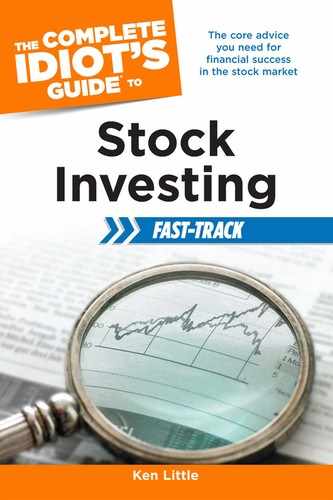There are several types of accounts that most brokers offer. They include …
• Cash accounts
• Margin accounts
• Discretionary accounts
There may be others that are particular to individual brokerages, but they will be variations of one of these three.
A cash account is the simplest type of brokerage account and the first one you will probably open. Online and discount brokers will most likely require you to make a deposit with enough money to cover your trade before they will open your account. Many will place this money in an interest-bearing account until you are ready to trade. When you place a buy order, the broker transfers the money to the brokerage account to cover the trade. When you sell a stock, the broker will deposit the proceeds in the account (unless you instruct them otherwise), so cash is available for the next purchase.
With a full-service broker, you may have three days to pay for your purchase, depending on the broker’s policy. However, many will also want money deposited in the account before trading begins. Trades must be paid for or “settled” within three days. This is called the “settlement date” and if you are a good customer with good credit, a full-service broker will give you those days to pay.
Margin accounts allow you to borrow money from the broker to buy stocks. A margin account allows you to borrow up to 50 percent of the value of the stock from your broker when you make a purchase. For example, if you want to buy $10,000 of stock, you could write a check for $10,000 or with a margin account, write a check for $5,000, and borrow $5,000 from your broker. Obviously, these accounts require more documentation and a stellar credit rating.
By borrowing one-half the value of the stock, you can multiply your profits dramatically. Here’s how that works: if the price of the stock doubles to $20,000, your investment in the margin account ($5,000) increases four-fold. You sell the stock and pay the broker back the $5,000 you borrowed. Your $5,000 has earned $10,000. If you paid cash for the stock ($10,000), you would have earned the same $10,000, but on a $10,000 investment.
With a margin account, you can make your money work harder if you own more stock. However, there is risk. If the value of the stock falls instead of rises, your broker will issue a “margin call.” A margin call usually comes when the value of the stock falls below the value of the money lent to you by the broker. However, some brokers may have different thresholds for margin calls. When you get a margin call, you have two options: you can deposit cash into the account to raise the value above the amount you borrowed or you can sell the stock immediately and pay off the loan. Some brokers may not give you the option of depositing cash; they may liquidate your position for you when the stock falls below a certain price.
| MARKET RISK |
Discretionary accounts give a broker or financial adviser the right to buy and sell stock without notifying you. If a broker wants this authorization, go find another broker. Unless you trust a broker or financial adviser with your life, never give anyone this type of control over your finances—it is the equivalent of a blank check. There are circumstances when these types of accounts are appropriate; however, for most of us they are not only inappropriate, but also hazardous to our financial well-being.
